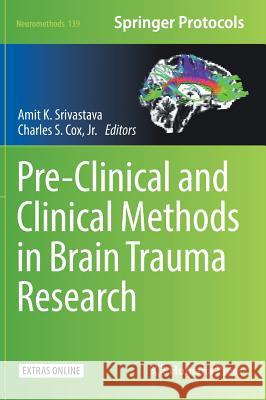Pre-Clinical and Clinical Methods in Brain Trauma Research » książka
topmenu
Pre-Clinical and Clinical Methods in Brain Trauma Research
ISBN-13: 9781493985630 / Angielski / Twarda / 2018 / 381 str.
Kategorie BISAC:
Wydawca:
Humana Press
Seria wydawnicza:
Język:
Angielski
ISBN-13:
9781493985630
Rok wydania:
2018
Wydanie:
2018
Ilość stron:
381
Waga:
0.89 kg
Wymiary:
25.4 x 17.78 x 2.24
Oprawa:
Twarda
Wolumenów:
01
Dodatkowe informacje:
Wydanie ilustrowane











